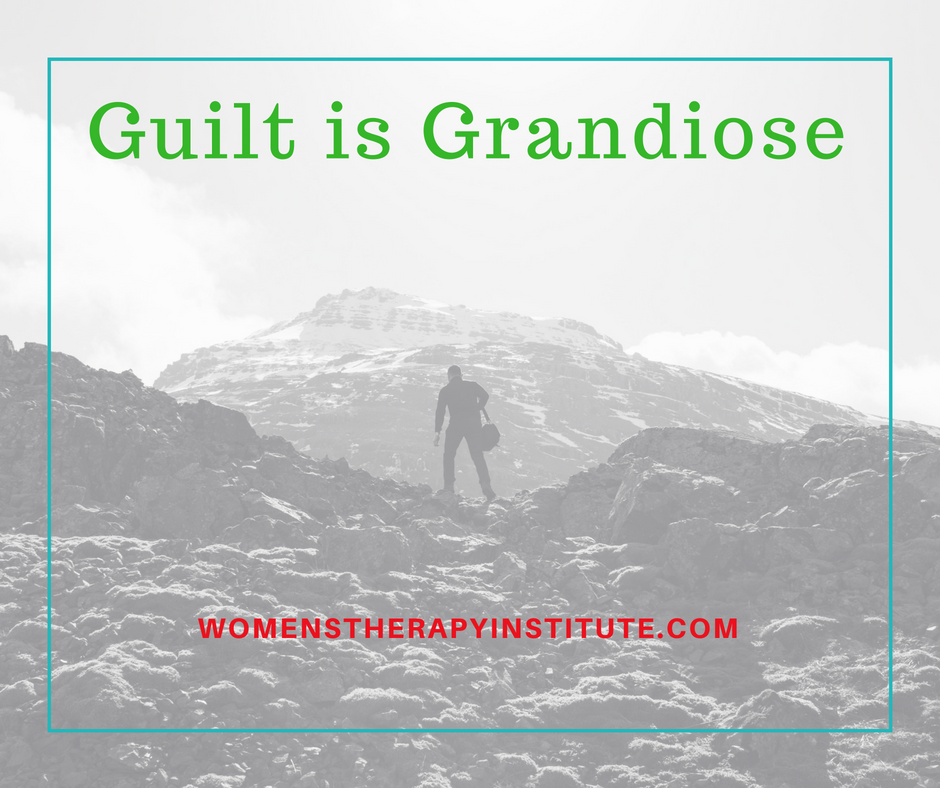
Guilt is Grandiose
Guilt is defined, from a psychological perspective, as “a feeling of responsibility or remorse for some offense, crime, wrong, etc., whether real or imagined.” The key part of that definition for me is the fact that guilt stems from this deep-seeded belief, or desire, that we are much more powerful in a moment than we actually are. Often times it is the belief that we could’ve done something to prevent the situation, even though in reality we couldn’t. It is grandiose.
The assumption that you were actually in control
Grandiose is the thought process that you are the “big fish,” you are “better than others.” When you feel guilty for something it is you assuming that you could have done better, that you are a better person than your old self. It is the assumption that you were actually in control in the moment. When the reality is you made a decision in the moment with what you had at the time. You decided to make the choice that you did with the information you had on-hand at the time.
We are humans, we are not going to make perfect decisions all the time. Guilt is the assumption that you could have made the perfect choice.
We are only human. We act on our desires, our emotions, and while not always the best choice or the socially-acceptable choice, our decisions are part of us. No one can perfectly predict, or see every side of every situation in a moment. To think that we are capable of ignoring our human desires or predicting the future is a grandiose thought.
Why do you think we feel guilty?
Research sources for this post:
https://www.psychologytoday.com/us/blog/shame/201305/the-difference-between-guilt-and-shame
